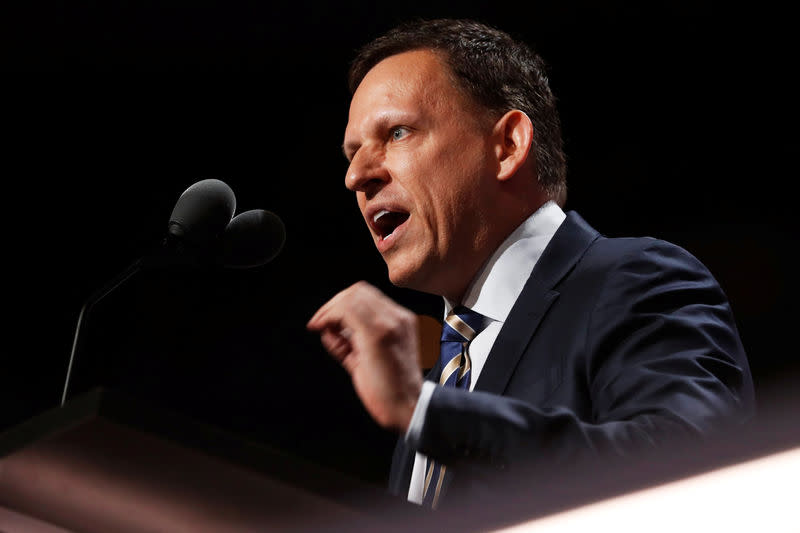Peter Thiel: The vast majority of the capital I give companies is just going to landlords
Billionaire venture capitalist and entrepreneur Peter Thiel believes the high cost of living is stifling entrepreneurship in Silicon Valley.
“One thing I’ve been thinking about as a venture capitalist in Silicon Valley is the vast majority of the capital I give to the companies is just going to landlords. It’s going to commercial real estate and even more to urban slumlords of one sort or another. And that’s an odd thing to be doing as a venture capitalist. That’s so disproportionate,” Thiel said at an event on Thursday hosted by the Economic Club of New York.
He explained that when a one-bedroom apartment goes for $2,000 in San Francisco versus a one-bedroom in Austin for $1,000 that suggests that San Francisco is a better place to live. However, when the rent on that one-bedroom in San Francisco reaches $4,000, perhaps it’s time to be open to other areas.

“I think this geographic question is one that we should be thinking about super hard. And even though the megacity trend has been this enormous social, economic trend for the last 40 years, there’s always a question — Is there some point where it’s gone a little bit too far?”
The ‘next Google’
Thiel, 50, recently relocated from Silicon Valley to Los Angeles.
Back in 2005, Thiel was asked during a panel discussion at Stanford University where the next Google (GOOGL) might emerge.
At the time, Thiel answered that he thought there was a 50% chance that the next Google would be within a 5-mile radius of that room. Unbeknownst to him, that company was Facebook (FB), which was just 1.8 miles away and a company he had invested in early.
Today, he says finding the “next Google” is a lot more challenging, and it likely won’t be in Silicon Valley.
“As I’ve been thinking about it, if I were to try to answer that same question today, in 2018, … I would think it’s much less than 50% chance that it’s anywhere within a 50-mile radius, anywhere within the broader San Francisco/Silicon Valley corridor. It’s not clear there will be another consumer internet company,” Thiel said during an event at the Economic Club of New York.
For the last 20 to 25 years, Silicon Valley has been focused mainly on the internet, with most of that focus on the consumer. He says it’s not clear there will be another consumer internet company like Google.
“The good ideas were found pretty quickly, and perhaps most of those have been explored. There is a sense that the future is going to be perhaps harder to predict. It’s going to be much more distributed. It will be areas outside of that.” he said.
Beyond consumer internet
Nowadays, the conversations in Silicon Valley are about artificial intelligence, augmented reality, virtual reality, self-driving cars, etc.
“You can be sort of bullish or bearish on these. I often worry that a lot of them are a little bit too much buzzwords and are somewhat exaggerated. But I believe they reflect the sense that perhaps it won’t be another app on the iPhone, it will be sort of beyond the consumer internet that we have to do new things.”
What’s more, he expects the next big idea will be “geographically more distributed.” He explained that a few years ago, people would come to Silicon Valley and participate in Y Combinator, the startup accelerator, and they’d go through that process for a few months, do a demo day, get funding, and stay in Silicon Valley and build the company.
Now he’s seeing more entrepreneurs return to their hometowns and cities. He noted that there are a lot of different factors, but the major one is the high cost of living.
“One of the important economic questions we should ask is at what point is this a feature and at what point does this become a bug?” Thiel said.
Megacities like San Francisco, New York, and London are a draw when they offer a deep network of people, ideas and capital. They become a bug when they get so expensive that entrepreneurs are focused on making money to just to pay the rent.
Julia La Roche is a finance reporter at Yahoo Finance. Follow her on Twitter.

 Yahoo Finance
Yahoo Finance 
